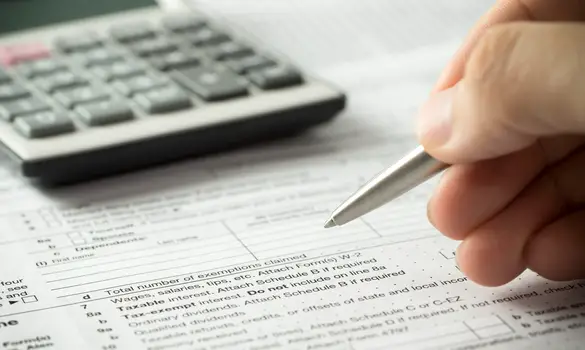
The small business tax filing process is critically important for business owners to remain compliant with the IRS. If you do not file your annual return by federal deadlines, you face significant penalties and business restrictions. If you plan on preparing your taxes by yourself, it is crucial you complete the process long before deadlines approach. You can even consider using an online tax filing software to help navigate you through the process. Whatever your preparation method is however, you still need to follow several universal steps. To learn how to prepare for the small business tax filing process before deadlines, continue reading this post.
Track Deadlines
Track deadlines to best understand when specific responsibilities must be completed. You must be aware that different business structures are accompanied with separate filing deadlines. If your business is taxed as a C-Corporation, utilizing Form 1120, you have to file by April 15. S-Corporations however, utilize a separate form, and are therefore required to file by March 15 every year. Because of this, S-Corporations must file their business taxes prior to their personal tax return. Always paying close attention to approaching deadlines ensures you prepare and file returns on time.
Gather Financial Records
Gather your various business documents and financial data needed in returns. Your tax return from last year will likely be needed for reference, and to consider filing changes. If you have employees, you also need payroll documents. You likely also need to produce bank or credit card statements, various accounting forms, partnership agreements, and depreciation schedules on large asset purchases. It may also be beneficial to save receipts from insurance premiums, returns, office supplies, rent, or contracted payments. Make certain you have these documents on hand early on. If you misplace or cannot access important documents, you may not be able to file in time for tax filing deadlines. Ensure you compile all your needed documents early on, so that you can still file in time for deadlines.
Fill Out Proper Forms
Consider the forms needed depending on your business structure and complete them in a timely manner. If you are taxed as a C-Corpoation, your business files under Form 1120. Similarly, S-Corps complete form 1120S, however filing at an earlier deadline. Limited Liability Corporations and Sole Proprietors must fill out Schedule C to detail their business expenses. They can even include these forms with their personal tax returns. Multi-Membership LLCs and Patnerships however, must utilize Form 1065 for their business tax return. Understand the proper forms you must complete. If you file using the incorrect form, the IRS will consider it a failure to meet deadlines. Fill out the proper tax preparation forms to complete your taxes by federal deadlines.
Calculate Business Tax Payments
Calculate the business taxes you will have to pay. Beware that these taxes often include more than sales tax or traditional taxes claimed on your personal return. If you fail to pay the correct taxes, you risk being able to meet deadlines. Before you begin the process, spend a great deal of time considering requirements in order to stay on top of IRS deadlines. Business owners must pay a self employment tax. The full tax is 15.3%, although half can be deducted on a 1040 return form. If you hire employees, you also must pay payroll taxes on their earned wages. Some businesses must also pay excise taxes depending on their industry. These are often associated with goods like liquor, cigarettes, or gasoline. Calculate business tax payments to guarantee that you can pay for and file taxes before deadlines.
File For Extension When Needed
When you are unable to meet tax requirements, consider filing for an extension. Extensions are relatively easy for business owners to file. In many cases, you can even file your extension online directly with the IRS. Extensions filed in time frequently give you until the Fall to file your return. However, extensions do not excuse you from paying for taxes. Even without a properly filed returns and a valid extension, you are still required to pay for incurred business taxes. If you are unable to meet deadlines, look to apply for a federal tax filing extension.
Tax preparation is one of the most important aspects of small business financial management. Filing taxes properly and before deadlines ensures you maintain a compliant status with the IRS. To help you throughout the process, you can even utilize electronic tax filing software. Before you begin the filing process you must gather all your necessary financial records and set up a system to clearly track deadlines. Fill out the proper forms depending on your business structure. Then, calculate the business tax payments you will incur. Finally, when you are unable to meet deadlines, consider filing for a tax extension. If you are interested in how to prepare for the small business tax filing process before deadlines, consider the points mentioned above.
 Business First Family Business, Accounting, Finance, Investing, Marketing And Management
Business First Family Business, Accounting, Finance, Investing, Marketing And Management